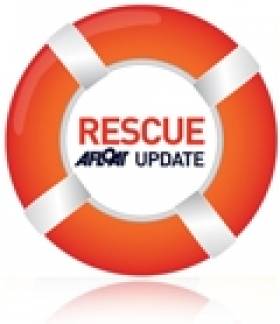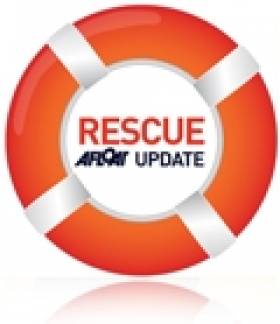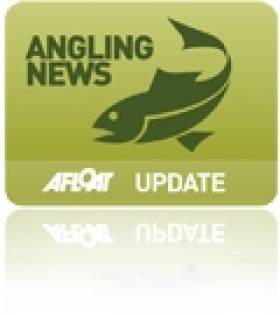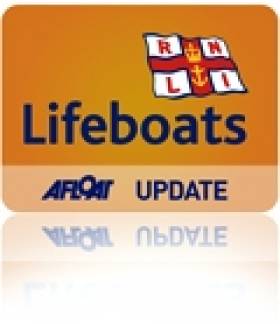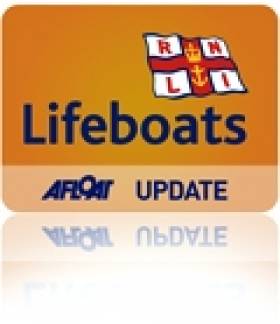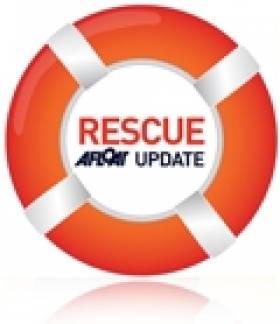Displaying items by tag: Co Louth
Body Recovered Off Dublin Thought to Be Missing Fisherman
#RESCUE - The Evening Herald reports that a body recovered 14km off the coast of north Dublin on Sunday is believed to be that of a missing fisherman.
The grisly find was made by the fishing vessel Rath Eilte in the waters off Skerries. A post-mortem was set to be carried out yesterday to determine the cause of death.
Found fully clothed in black and yellow oilskins, the remains are thought to be those of a Ukrainian in his 30s, a crewman on the Kilkeel-registered Zenith who was reported missing some 14.5km off Clogherhead in Co Louth on 29 January.
Search for Fisherman in Irish Sea Enters Second Day
#RESCUE - The Irish Times reports that the search has resumed for a fisherman who fell overboard from a trawler in the Irish Sea yesterday.
The crewman of the Kilkeel-registered fishing vessel Zenith was reported missing some nine miles (14.5km) off Clogherhead, Co Louth.
Yesterday afternoon the Irish Coast Guard and Clogherhead RNLI began an air and sea search and rescue effort, assisted by coastguard helicopter and other lifeboats and vessels in the area.
The Irish Times has more on the story HERE.
Minister Opens White River Fishery Enhancement Project
#ANGLING - Minister of State Fergus O'Dowd was on hand at the opening of the White River enhancement project in Dunleer, Co Louth earlier this month.
The €32,000 project was funded by the Louth Leader Partnership, with works were carried out by the Dee and Glyde Fishing Development Association and the Dundalk district staff of Inland Fisheries Ireland.
The White River, a tributary of the River Dee, is considered hugely important as a spawning and nursery area, and it has already seen significant improvements in the levels of juvenile salmon and trout.
Instream enhancement works began in 2006, supervised by Inland Fisheries Ireland, and included the introduction of new gravel, weirs, deflectors and spawning beds which have helped the White River to achieve its potential in terms of fish numbers.
Speaking at the launch, Inland Fisheries Ireland CEO Dr Ciaran Byrne said: "The work that I have seen on the river is fantastic and a credit to all involved."
IFI assistant inspector in Dundalk, Ronan O’Brien, said project was based on restoring the natural features of the river.
He added that the programme was a great recognition of the work carried out by the Dee and Glyde Fishing Association, and that it had strengthened links with local business and development groups and could be used as a template for other projects in the area.
Girls Rescued After Strong Winds Sweep Canoes Out to Sea
The Irish Examiner reports that the girls were with an instructor from an adventure centre at Clogher Beach, Co Louth when they got into difficulty.
Lifeboat operations manager Declan Levins spotted the group in trouble from the Clogher Head Beach station and a rescue operation was immediately mounted. None in the group was harmed.
Body of Fisherman Found in Castletownbere
The body of a fisherman reported missing from a trawler at Castletownbere, Co Cork yesterday morning has been recovered.
Local divers teamed with the Castletownbere Lifeboat and the Irish Coast Guard for a search that ended around 1.30pm when the body of the 43-year-old was found in the water close to the pier.
The Irish Times reports that the man, who resident in Clogherhead, Co Louth, had been socialising with friends the night before and failed to return to the Patrick C, the trawler on which he was a crewman.
Skerries Search Called Off as Bodies of Fishermen Found
The bodies of two fishermen missing off the Skerries coast since last Friday have been found.
Ronan Browne, 26, and David Gilsenan, 41, had not been seen since setting out from Skerries harbour on the morning of 1 April.
As previously reported by Afloat.ie, the alarm was raised when they had failed to return by 6.30pm and a coast guard search began immediately.
Naval vessels joined the operation as the search continued following the discovery of an upturned hull and an oil slick near Clogherhead, Co Louth.
According to RTÉ News, at 1.40am yesterday morning a fishing vessel discovered the bodies of the two men caught in its fishing gear some five miles east of Clogherhead. They were recovered by RNLI lifeboat.
RTÉ News has more on the story HERE.


























